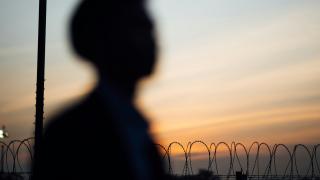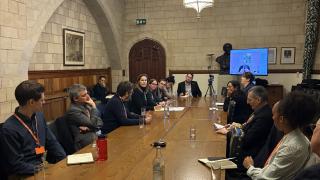
On 10 July, Prime Minister Keir Starmer and French President Emmanuel Macron unveiled a new “one in, one out” migration pilot, aimed at reducing small boat crossings in the English Channel. Under this scheme, which came into force on 4 August, individuals entering the UK via small boat sea routes may be returned to France if they lack family links in the UK. In exchange, a similar number of asylum seekers with strong protection reasons or UK-based relatives would be admitted from France.
While proposed as a pragmatic deterrent, this scheme poses serious concerns over human rights compliance, humanitarian impact, workability and effectiveness. Over six weeks since the pilot was announced the government has confirmed that while over 100 individuals who crossed the Channel in small vessels have been detained pending potential transfer to France, no applications for safe entry to the UK have yet been approved, despite reports of growing frustration among migrants in Calais over a lack of response.
The UN Refugee Agency (UNHCR) has expressed measured support for the pilot if appropriately implemented, stating that it could help achieve a more managed and shared approach, offering alternatives to dangerous journeys, while upholding access to asylum.
However, UNHCR cautions that operational specifics are essential. Only with full alignment to international law, protections, and procedural transparency can the pilot genuinely deliver shared responsibilities and humane outcomes. In a statement on the pilot scheme, Philippe Leclerc, UNHCR Director of the Regional Bureau for Europe, said:
Addressing the causes of flight from countries of origin is [also] crucial. Global aid cuts, now biting, risk fuelling instability and desperation; and focusing on the Channel alone risks overlooking the real drivers of dangerous journeys.
UNA-UK’s CEO Jane Kinninmont said:
Much is still to be explained about how this pilot will work. But let’s put this in context. When the government has reviewed the cases of asylum seekers who arrive in small boats, the majority have been found to be refugees fleeing war and persecution, with the top five countries of origin being Afghanistan, Syria, Eritrea, Iran and Sudan. Let’s also remember that the vast majority of refugees from those countries are already given sanctuary closer to home in countries such as Pakistan, Turkey and Ethiopia.
Simultaneously, the Border Security, Asylum and Immigration Bill is progressing through Parliament. Though advertised as targeting smugglers, its broad criminal powers risk penalising those seeking sanctuary, including the most vulnerable - contradicting the Refugee Convention’s core protections. The UK Parliament’s Joint Committee on Human Rights report on the Bill, stated:
We are concerned that the new offences in the Bill are drafted excessively broadly and pose a serious risk of criminalising refugees and other vulnerable groups. Consequently, they risk breaching various international legal obligations, which protect against the penalisation of refugees, smuggled persons, and victims of modern slavery.
Proven alternatives to dangerous crossings, such as global resettlement schemes, the Dubs relocation programme for unaccompanied children, and special pathways for Syrians, Ukrainians, and people from Hong Kong show what is possible. However, it remains unclear exactly how the Home Office will decide who is sent back to France as part of the pilot scheme, and whether their asylum claims will be given fair consideration once they arrive there. French authorities have recently been reported using tear gas against asylum seekers trying to cross the Channel. Without adequate safeguards in place, people escaping real persecution risk having their claims deemed inadmissible and being returned without receiving a fair hearing.
Recent policy changes, including restrictions on refugee citizenship, further signal that those who arrive in the UK via irregular routes may never fully belong, despite being awarded refugee status. These initiatives not only violate international commitments but also erode social cohesion and trust, which is deeply counter-productive.
A systematic response to refugeehood and displacement should span the full policy agenda, from investment in addressing the root causes of conflicts and providing support to regional refugee hosting states, to ensuring refugees can experience full integration and belonging when they are received here in the UK.
At a moment when global rules and protections for the most vulnerable are being undermined, it is essential that the UK honours its commitments and defends the refugee protection framework. Political point-scoring must never override basic rights and human dignity. UNA-UK urges the UK to uphold it’s responsibility to support people forced to escape conflict and persecution by creating fair, workable, and humane immigration policies that safeguard the right to asylum while ensuring safety, dignity, and opportunities for refugees.
Read more:
- Read UNA-UK calls on the UK government to bring immigration guidance in line with international law
- Read UNA-UK's response to the UK Government suspension of decision making in Syrian asylum cases
- Read UNA-UK's statement in response to the passing of the Rwanda Bill
- Read UNA-UK's statement in response to the Illegal Migration Bill
- See the UN Refugees Agency’s account of Asylum in the UK
- Read UNA-UK's statement on the Nationality and Borders Bill
Photo: Person silhouetted against wire fence. Credit: Chuttersnap on Unsplash.




